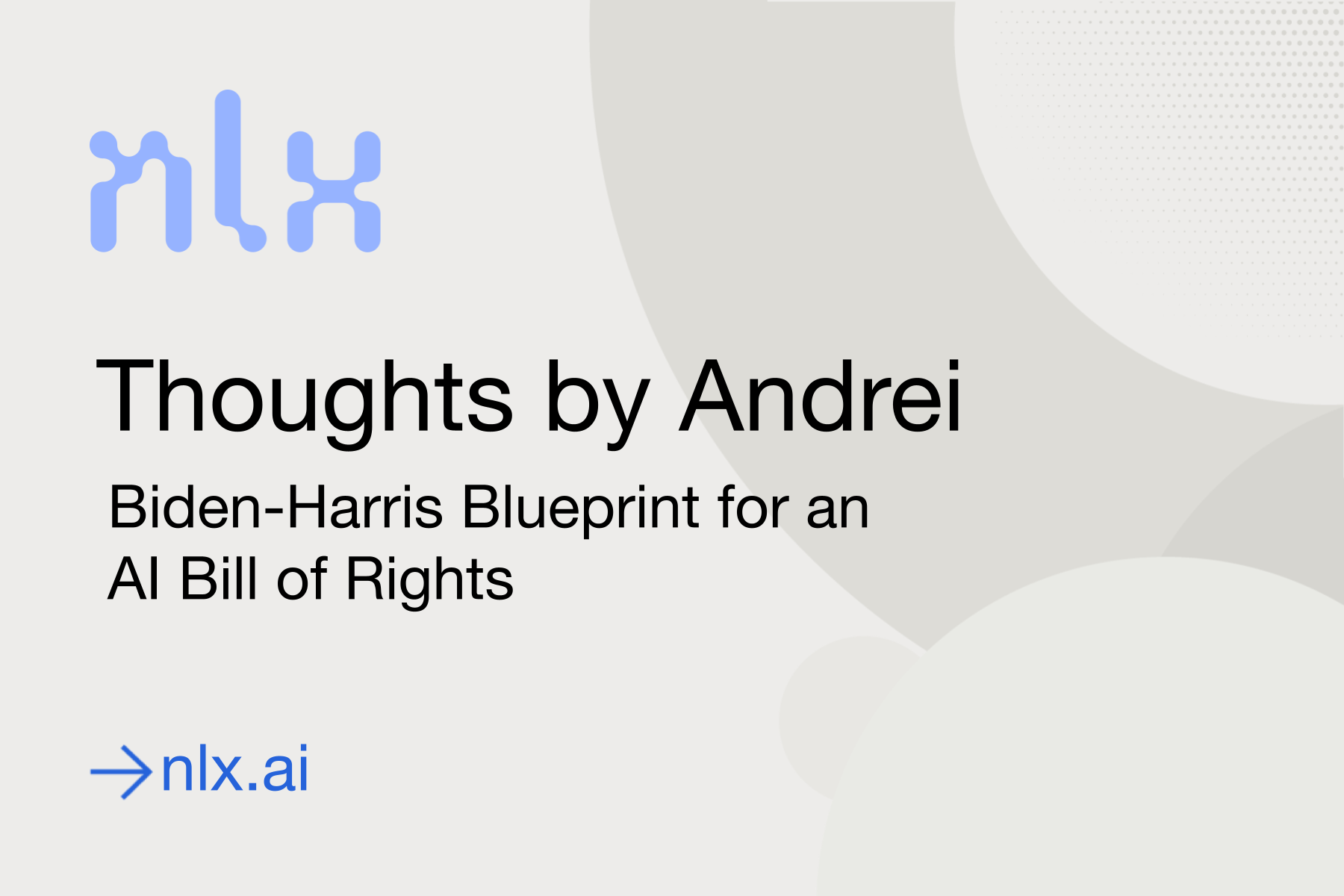
Biden-Harris Blueprint for an AI Bill of Rights
As CEO of a fast-growing technology startup, my eye isn’t normally trained toward the political space, but the "Blueprint for an AI Bill of Rights" really caught my attention. Not only does it touch on AI - our business space - but it outlines principles and protections that are in line with many of the things we help clients think through when designing and building automated conversations.
The document was created “to help guide the design, development, and deployment of artificial intelligence (AI) and other automated systems so that they protect the rights of the American public,” according to the department’s press release. There are five core protections mentioned within the blueprint, as follows:
- Safe and Effective Systems: You should be protected from unsafe or ineffective systems.
- Algorithmic Discrimination Protections: You should not face discrimination by algorithms and systems should be used and designed in an equitable way.
- Data Privacy: You should be protected from abusive data practices via built-in protections and you should have agency over how data about you is used.
- Notice and Explanation: You should know that an automated system is being used and understand how and why it contributes to outcomes that impact you.
- Alternative Options: You should be able to opt out, where appropriate, and have access to a person who can quickly consider and remedy problems you encounter.
These principles are, in my view, straightforward, non-partisan, and good for the end-user… something that NLX focuses on relentlessly while building out conversations.
Re: Safe and Effective Systems: YES! THANK YOU! Customers should be protected from unsafe and ineffective systems! There’s nothing more irritating than interacting with AI that doesn’t do the job it’s supposed to do, or worse - it puts you at risk! Brands offering automation need to ensure that customers get the help they need and aren’t left waiting and unhelped.
Re: Alternative Options: At NLX, we always want to do what’s right for the end-user. That is also what is generally right for our customers, our partners, and our business as well. That said, not every customer inquiry should be automated, and businesses must have alternative options where the end user can opt out and get the help they need to resolve their inquiry. This may mean that “containment” metrics take a dip but the tradeoff is increased customer satisfaction with service because the end-user is receiving the help they need.
Re: Notice & Explanation: While Conversational AI can be designed to be human-like, it is not human. This is an important distinction. Failing to inform the customer that a virtual assistant is being used can add to further mistrust of AI, creating a poor customer experience. With that said, we also agree that end-users should be aware that an automated system is being used.
The Biden-Harris Office of Science and Technology release continues to delve into further detail about protections for workers, healthcare providers, students, etc. While I do think the blueprint could delve a bit further into promoting the benefits AI can have, beginning with basic protections is a good place to start. We look forward to seeing what else the department publishes in the coming months!
Read more from the White House press release here.
